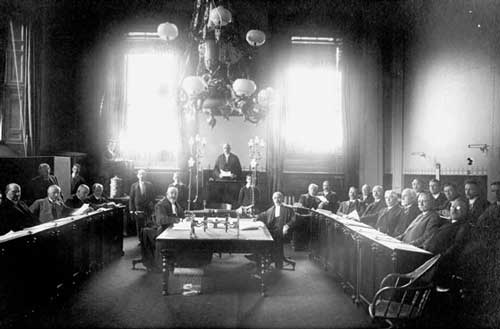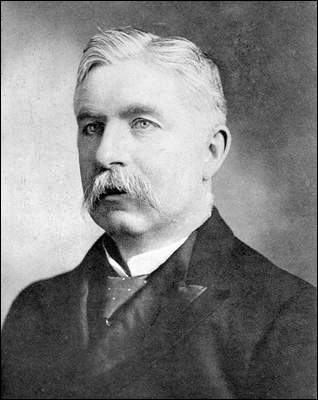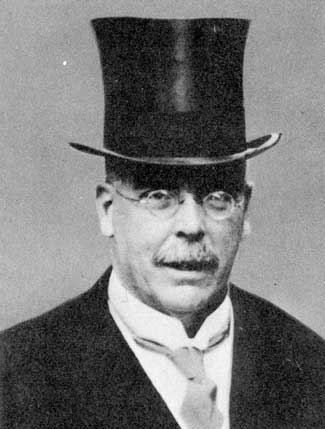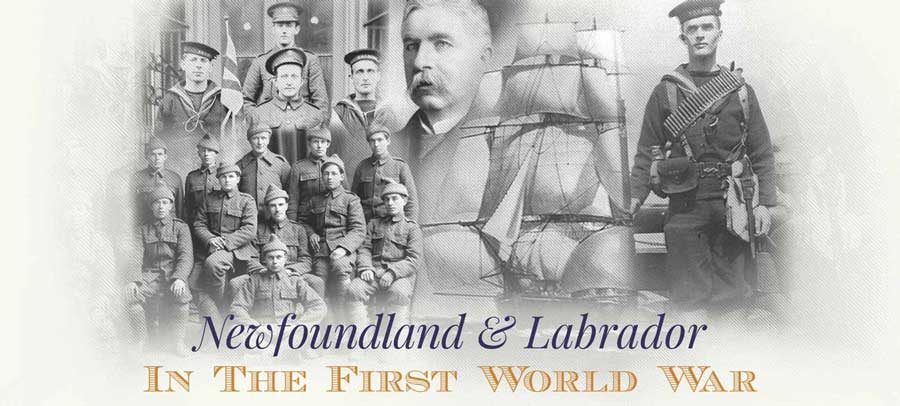The State and the Great War
At the outbreak of war in August, 1914, the People's Party was in power, led by Sir Edward Morris. In deciding how Newfoundland might participate in the war, Morris was greatly influenced by the governor, Sir Walter Davidson, who wanted to play an active, rather than a symbolic role.

Courtesy of The Rooms Provincial Archives Division (C 1-207), St. John's, NL.
Without convening the Legislature, the Morris government decided that the colony would raise and equip a regiment for service in Europe. Though a complex, difficult, and expensive task, this responsibility was handed over by the government to the Newfoundland Patriotic Association (NPA), chaired by Davidson. This was a unique response to an unprecedented challenge. Elsewhere in the Empire, governments administered their war efforts directly, through a government department. In Newfoundland, the war effort was to be managed by an association of volunteers, though funded by the state and including leading politicians among its members.

Courtesy of The Rooms Provincial Archives Division (VA 33-59), St. John's, NL.
While this decision can be seen as an abdication of responsibility by the government, the NPA played a useful function a neutral body, through which people of different political and religious affiliations could work together for a common, patriotic cause. As the war dragged on, however, it was found that the NPA could not adequately handle its heavy responsibilities. In particular, recruitment was not handled effectively, in part because the NPA was relatively weak in rural areas outside the Avalon Peninsula. It was seen as a St. John's organization, and it could not bridge the growing tension between the City and the outports over the relative contribution of each to the war.
With the necessity of conscription on the horizon by 1917, it became clear that the government would have to take over direct responsibility for the war effort. Morris postponed the election due that year until the end of the war, formed a coalition National Government, and created a Department of Militia. He then departed for Britain and a seat in the House of Lords as Baron Morris of Waterford. The new Prime Minister was the Liberal leader, William Lloyd. Governor Davidson left Newfoundland at the same time. The National Government successfully managed the country's war effort, put controversial conscription legislation through the legislature, and dissolved in 1919.

From the Encyclopedia of Newfoundland and Labrador, I (1981), p. 595. Print. Original source unknown.
Given its small population and fragile economy, Newfoundland made a remarkable contribution to the Great War. It did so at considerable cost. In political terms, the legacy of the war was twofold. First, it caused a huge increase to the public debt, which severely handicapped interwar governments - the total cost of the war effort was approximately $35 million. Second, the war broke up the pre-1914 party system, and ushered in an unstable period when politics was dominated by rival political chieftains. Political debate became increasingly bitter and polarized, and there was little possibility of a united response to the problems which the country faced during the 1920s and the Depression.
The state responded well to the challenges of the Great War, if in an idiosyncratic way. It can certainly be argued, however, that one result of the war was the financial collapse of the early 1930s.
